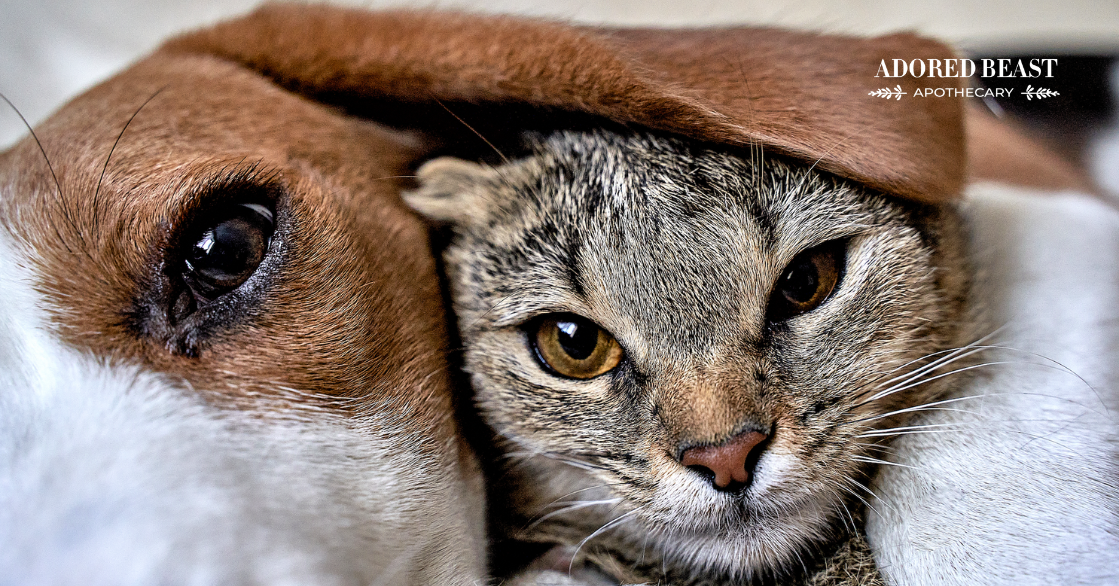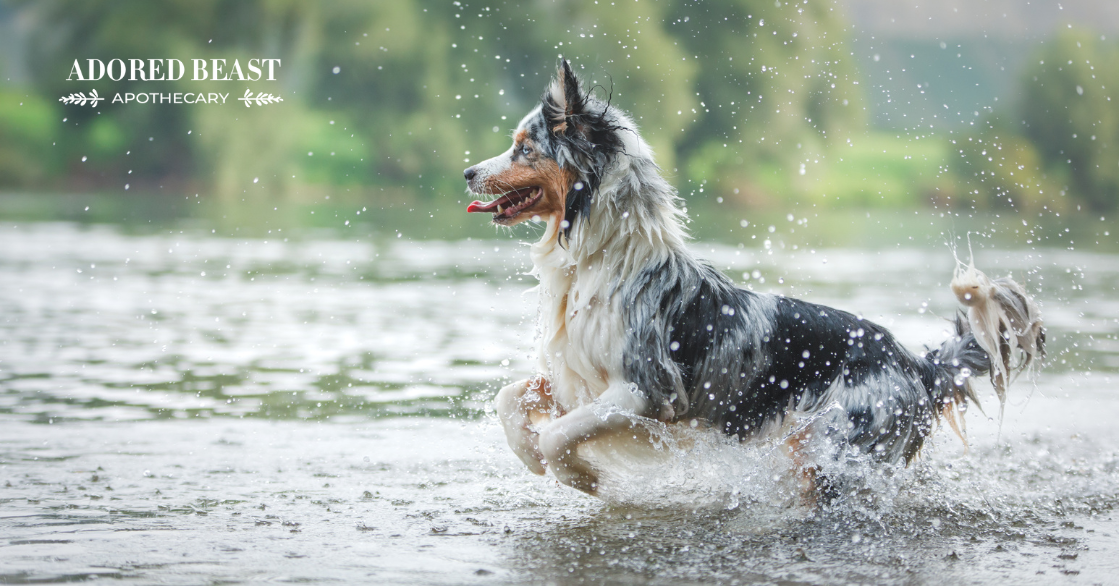It’s a toxic world we live in!
Sorry to start off on such a negative note – but it’s true. Our families (both two- and four-legged) come face-to-face with invisible threats to health on a daily basis. One of the biggest threats are free radicals…
The good news is, there are plenty of ways to challenge those free radicals head-on, to minimize the risk they pose to our loved ones (and ourselves). Today we’re talking about the best antioxidants for dogs and cats. (And all of these are things you can also add to your own healthcare routine!)
Free Radicals and Antioxidants
We mentioned free radicals as one of the biggest threats to overall health. So what are they exactly? Let’s head to the science lab!
Atoms are surrounded by electrons in layers called shells. Electrons want these shells filled, and atoms with full outer shells are stable. Free radicals, however, are “charged” atoms that bond to other atoms to fill their electron “shells” and in an effort to make up the number of electrons in their outer shell, they react quickly with other substances.
And yes, the body does produce free radicals naturally. In fact, when they’re at safe levels they can even be helpful. However, these unstable atoms can do major damage to cells. If they continue to multiply unchecked, it causes something called oxidative stress. Oxidative stress damages your pet’s DNA (and your own), leading to disease. We often refer to this as “biological rusting,” an effect caused by too much oxygen in the body’s tissues. Oxidative stress plays a major part in the development of chronic and degenerative illness such as cancer, autoimmune disorders, aging, cataract, rheumatoid arthritis, cardiovascular and neurodegenerative diseases.
While some free radicals are ok, too many are an issue, as you can see. Unfortunately, certain things increase the body’s production of them:
- air pollution
- stress
- all medications (including flea and tick medications)
- industrial chemicals
- chemical-based pesticides
- cigarette smoke
- inflammation
- radiation (ex. x-rays)
- processed food
Thankfully, the body can counteract oxidative stress with antioxidants, either by producing them naturally, or via foods or supplements with high antioxidant values. Antioxidants work by scavenging free radicals and destroying them!
The Best Antioxidants for Dogs and Cats
It’s really easy to add antioxidants to your pet’s diet (and your own). Both antioxidant-rich foods and antioxidant-rich supplements can help fight free radicals and the damage they can do.
When it comes to the best antioxidants for dogs and cats, these top our list:
1. Phytoplankton
Phytoplankton is one of the only things on the planet that is absorbed by the body before it gets to the gut. This makes it hugely bioavailable to the body. It is a single-celled organism that offers trace minerals, chlorophyll, essential amino acids, EPA, fatty acids, protein, carotenoids, amino acids and other nutrients.
But when it comes to antioxidants, it really is a superpower. Superoxide dismutase within the cell of phytoplankton has been referred to as the “king of antioxidants.” No wonder some sea turtles that consume 90% of their diet from certain strains of phytoplankton can live until they are 200 – no rust on those guys 🙂
2. Chaga Mushrooms
Several different medicinal mushrooms rank high on the antioxidant scale, but chaga reigns supreme. Like phytoplankton, chaga mushrooms are a rich source of superoxide dismutase. Chaga mushrooms have naturally occurring sugars called beta-glucans that are found in the cell membranes of plants and animals. Extensive research on chaga has been done, and from that we now chaga provides high levels of cellular protection against DNA damage caused by oxidative stress.
Plus, the antioxidant properties are joined by many other properties, making medicinal mushrooms a great addition to any supplement regime.
✨ Our Vital Defense is a powerhouse combo of chaga and phytoplankton!
3. Antioxidants from Food
Some of the richest food sources are things you may already feed on a regular basis. Feeding antioxidant-rich foods is easy, and you can change up what you offer on a daily basis. Plus, if your pet isn’t a fan of one, try another. Obviously these are more for dogs than cats as most cats will turn their noses up at the things on this list.
- Blueberries
- Strawberries
- Raspberries
- Cranberries
- Kale and spinach
- Beets
- Bananas
- Red cabbage
- Sweet potatoes
- Apples
- Pumpkin
- Broccoli
- Artichokes
- Eggshell membranes
- watermelon and cantelope
Antioxidants for dogs and cats (and us) are so important. No matter what you feed, adding in antioxidants on a daily basis will help your animal fight those invisible invaders and help them fend off illness and disease in the years to come!












